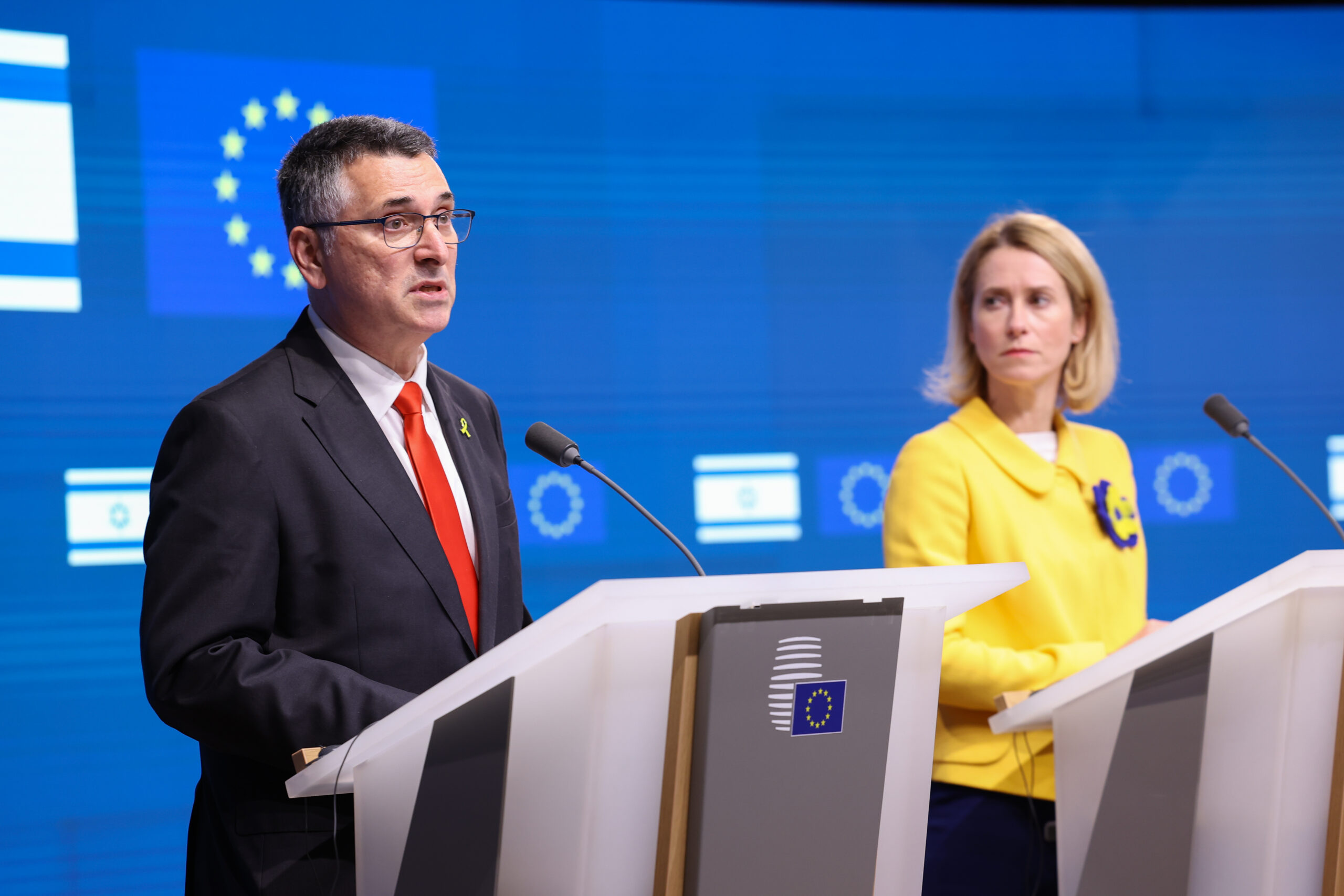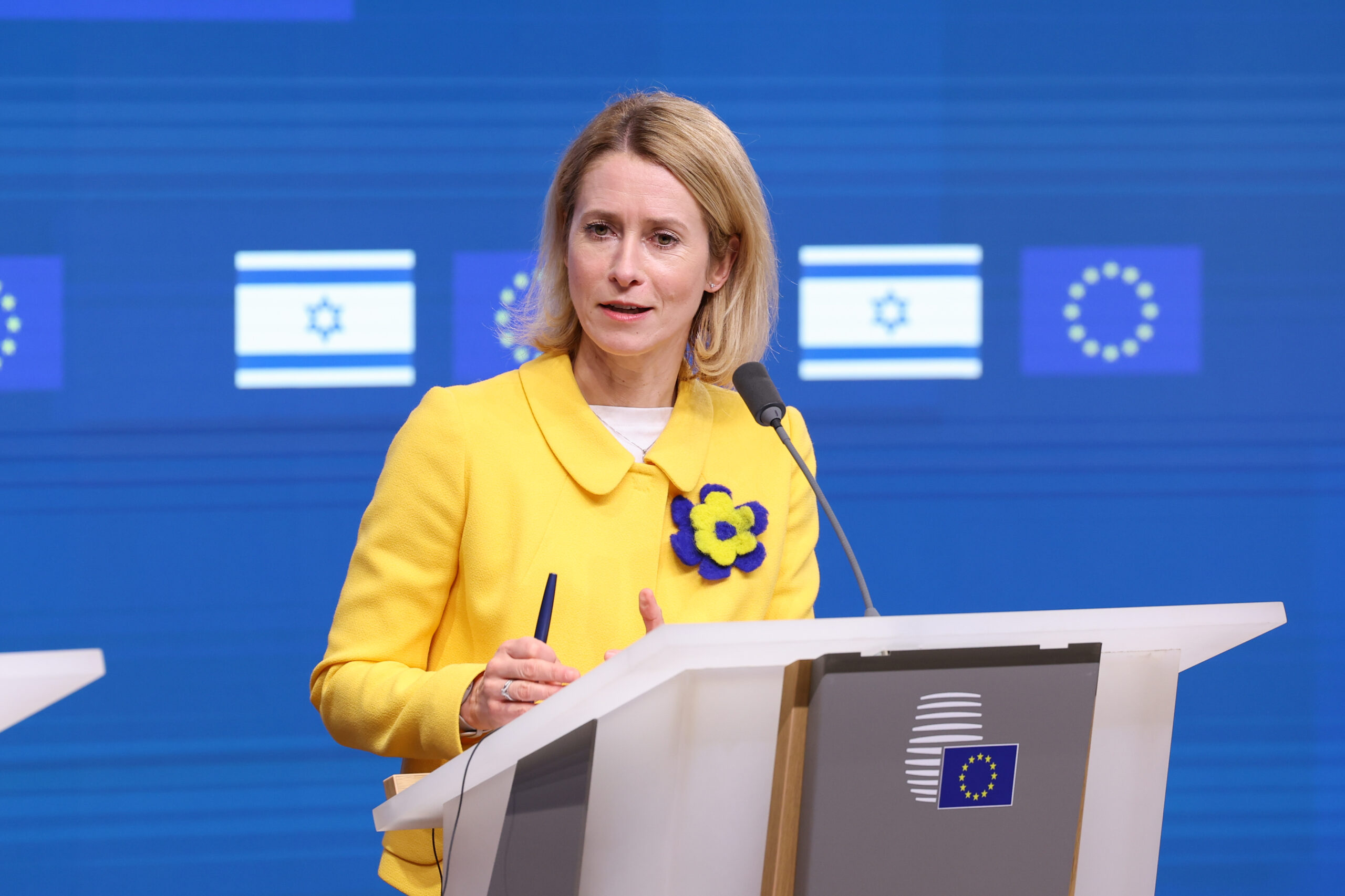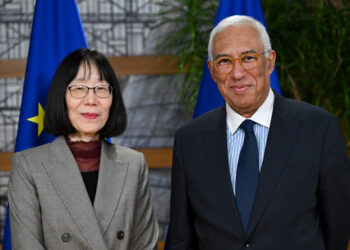Brussels – Former EU High Representative for Foreign Affairs, Josep Borrell, had insisted on convening a summit with Tel Aviv to discuss violations of human rights obligations under the EU-Israel Association Agreement. A year later, the Association Council was held amid a very fragile truce in Gaza and renewed violence in the West Bank. However, the meeting between the head of EU diplomacy, Kaja Kallas, Israel’s foreign minister, Gideon Sa’ar, and his European counterparts encompassed all aspects of the relationship between the two partners. It confirmed that Brussels will not use any leverage to pressure a government that, despite everything, remains ‘friendly.’
That there are irreconcilable differences in views between the two partners is evident. Sa’ar highlighted it when, twice, speaking of the occupied Palestinian territories, told reporters, “What you call the West Bank and we call Judea and Samaria.” But the EU on Israel is divided – and therefore weak – and cannot go beyond “concern” about the violence and “calls” to respect international law. Indeed, the impression is that Brussels’ position has softened with a ceasefire now reached in Gaza.
Before an Association Council, the 27 member states must agree on a common position. In the document released by the EU Council services, the member countries immediately recalled that “pursuant to Article 2 of the Association Agreement, relations between the Parties, as well as all the provisions of the Agreement itself, shall be based on respect for human rights and democratic principles.” This is followed by the condemnation “in the strongest terms” of the October 7 Hamas attacks and those launched by Iran and the Yemeni Houthis. After that, the EU “deeply deplores the unacceptable number of civilians,” and “the catastrophic humanitarian situation” in Gaza. EU ministers reiterated to Sa’ar their opposition “to all actions that undermine the viability of the two-state solution” and to “Israel’s settlement policy.” Brussels “will not recognize changes to the 1967 lines unless agreed by the parties,” the EU common position specifies.

Upon his arrival, Sa’ar stated, “It is legitimate for everyone to have their own opinion. We know how to deal with criticism; we are used to it, as long as the criticism is not related to delegitimization, demonization, or double standards, which from time to time are things we see in attacks against Israel.” Earlier in the morning, UN Secretary-General Antonio Guterres — victim of furious verbal attacks (and even sanctions) by the Israeli government in recent months — told the UN Human Rights Council in Geneva he was “gravely concerned about the increase in Israeli settler violence in the West Bank and demands for annexation.”
As requested by the Spanish Foreign Minister, José Manuel Albares, the EU could respect the “rules on trade of products from the colonies,” that is, stop applying the same tariffs to goods arriving from illegal Israeli colonies as those provided by the EU-Israel Association Agreement for goods from internationally recognized Israeli territory. The EU does not do this, and so Israel turns a deaf ear. “What we are doing is defending our security. These are military operations against terrorists, and there are no objectives other than this,” Sa’ar said. However, according to a recent UN census, 279 new colonies have been built in those territories since the 1993 Oslo Accords.
The EU ministers put on paper – and told Sa’ar – the commitment to “fully respect international law” and to ensure that “all agreements between the State of Israel and the EU unequivocally indicate their inapplicability to the territory occupied in 1967.” Member countries “strongly condemn” the escalation of violence in the West Bank and East Jerusalem “as a result of the expansion of illegal settlements and Israeli military operations” and especially demand that Israel do more to “prevent settler violence.”
The Israeli minister said relations between Tel Aviv and Brussels “should not be hostage to the Israeli-Palestinian conflict.” They should not take into account the more than 46,000 Palestinians in Gaza who have died under Israeli bombs since October 7, 2023. On the contrary, according to Sa’ar, Israel “has proven to be a stable and strong force in a chaotic region” and “an asset for Europe strategically, economically, technologically, and more.”
Among the questions the EU should ask itself are the continuous Israeli attacks on the legitimacy of international law. Holding an Association Council with a government whose prime minister is subject to an arrest warrant from the International Criminal Court can only make things uneasy. It also exposes the EU once again to the accusation of applying double standards in Ukraine – this morning, in Kyiv, Ursula von der Leyen said that “autocrats around the world are watching very closely whether there is impunity if you invade your neighbor and violate international borders” – and in Gaza. Asked about the invitation by Friedrich Merz — the fresh winner of the federal elections in Germany — to Netanyahu, Kallas demurred, arguing that “the EU supports the Hague Court and the principles of the Rome Statute, but it is up to the member states to decide whether to respect its mandates.”
The ministers of the 27 member states “stressed that there can be no other solution than the two-state solution,” Kallas continued. She added that the EU “supports the Palestinian National Authority and its return to Gaza,” as well as the “return of every displaced Palestinian for whom Gaza is home.” However, Sa’ar, whose government applauded the staggering ethnic cleansing plan for the Palestinian enclave that Donald Trump proposed, responded vaguely and confusingly: “When you talk about migration, when you talk about free individual choice and a state ready to accept an individual, this is the most moral and humane thing to do. It is not imposing displacement.”
English version by the Translation Service of Withub









